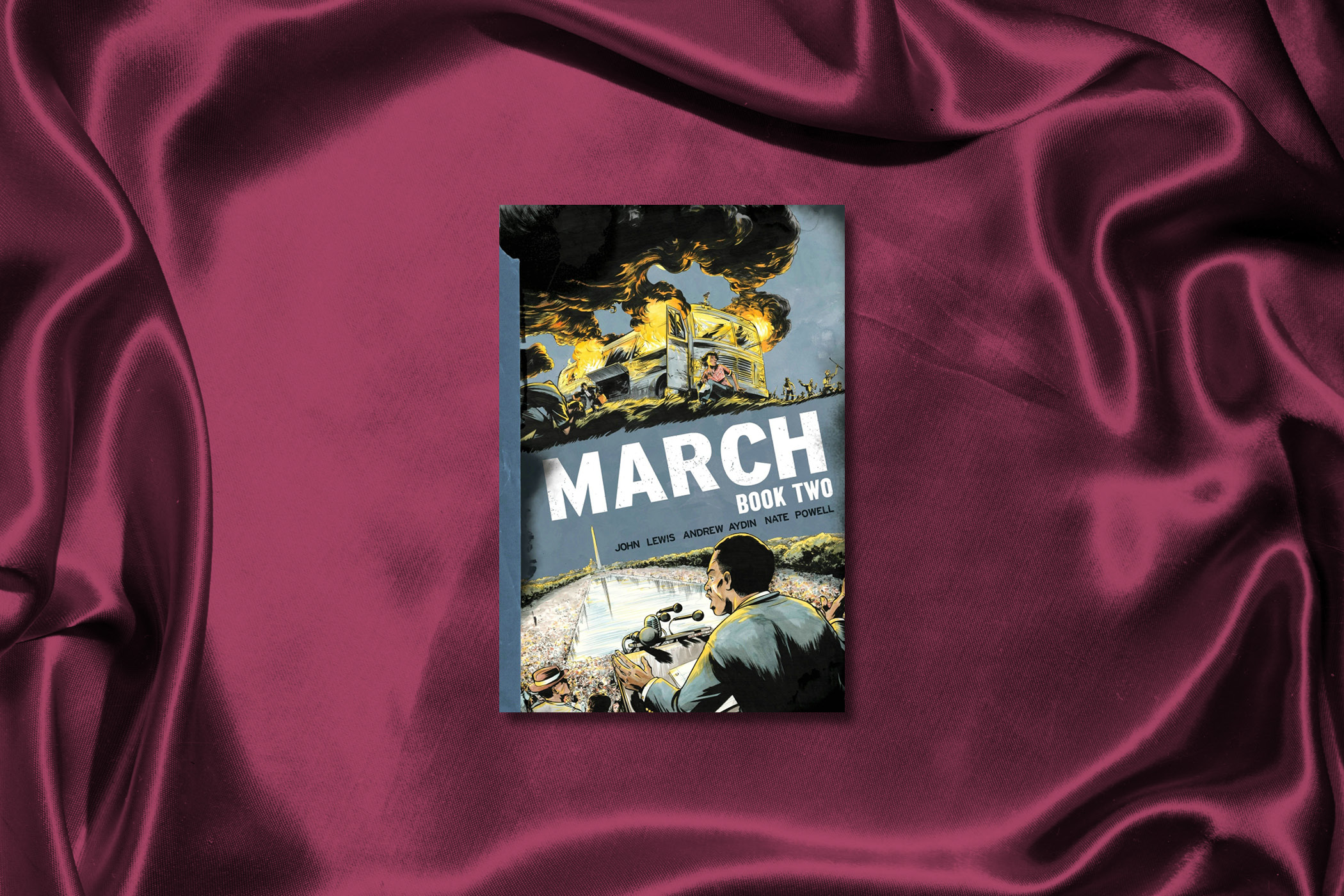In the second installment of the graphic novel trilogy about his life in the civil rights movement, the late Congressman John Lewis—along with his co-author Andrew Aydin and illustrator Nate Powell—doesn’t shy away from the violence that characterized that era. As Lewis and his fellow Freedom Riders take road trips through the South to stress-test the Supreme Court decision that desegregated interstate buses, they endure harassment, beatings and imprisonment. March: Book Two picks up after the founding of the Student Nonviolent Coordinating Committee in 1960, and though the narrative reaches its climax when Martin Luther King, Jr. gives his famous speech at the March on Washington, it ends with the bombing of the 16th Street Baptist Church in Birmingham three weeks later on Sept. 15, 1963. The bombing, which killed four Black girls, signals for readers that, despite the triumph at the march, the activists’ work is far from over. If Book One introduced the March trilogy as a pioneering work that blends the memoir, historical nonfiction and graphic novel genres, Book Two firmly established it as essential reading for young adults who are learning the value of civic engagement. In the time between the publication of Book One in 2013 and Book Two in 2015, the latter had come to be used in middle schools, high schools and college classrooms across the country. The second installment continues to be useful as an educational tool, but throughout the series the authors resist the urge to provide a broad historical overview, opting instead to focus on Lewis’ story in order to put a human face on the civil rights movement. Powell’s illustrations use bold strokes and intricate shading to capture the facial expressions and body language of the characters, helping young people forge an emotional connection to this turbulent time in American history. —Shay Maunz
Buy Now: March: Book Two on Bookshop | Amazon
- Donald Trump Is TIME's 2024 Person of the Year
- Why We Chose Trump as Person of the Year
- Is Intermittent Fasting Good or Bad for You?
- The 100 Must-Read Books of 2024
- The 20 Best Christmas TV Episodes
- Column: If Optimism Feels Ridiculous Now, Try Hope
- The Future of Climate Action Is Trade Policy
- Merle Bombardieri Is Helping People Make the Baby Decision
